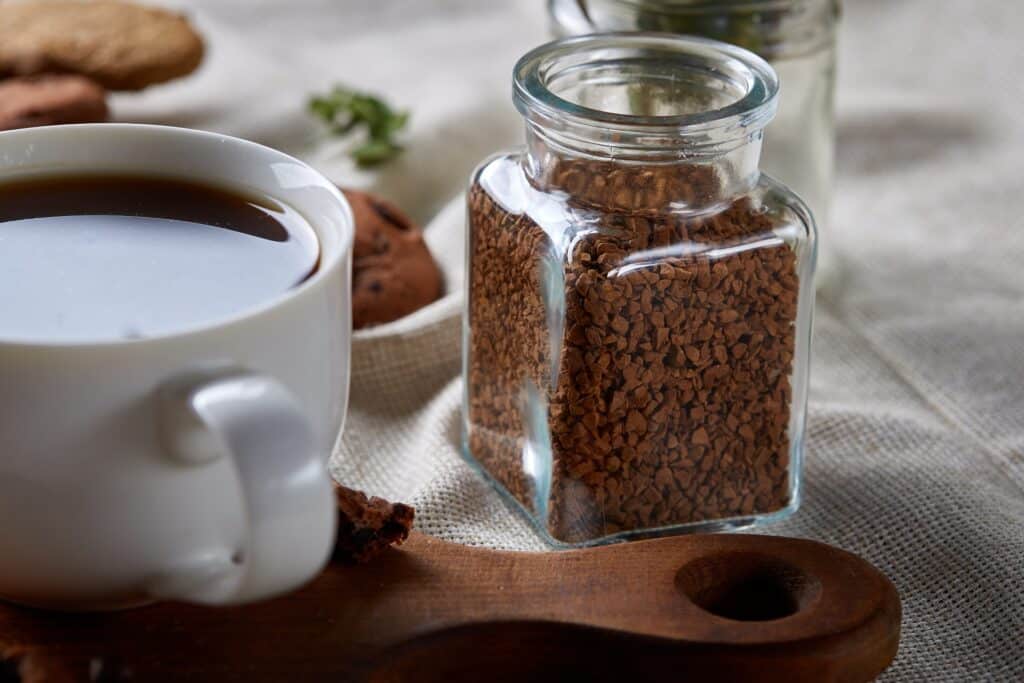Aroma recovery and extraction specialist Flavourtech explains how customers can achieve their sustainability goals with its manufacturing processes and engineering knowledge.
Flavourtech has been pioneering the development of aroma and flavour recovery technologies to improve the production of instant and ready-to-drink (RTD) coffee for 35 years.
Flavourtech Global Sales Manager Paul Ahn says its unique process involves capturing the flavour of coffee as early as possible, storing, and protecting it, and utilising much shorter times in the machinery to reduce the thermal impact, thereby maintaining quality throughout.
“We do this by using the Integrated Extraction System (IES), a continuous, automated processing line that allows customers to produce premium aromas, extracts, and concentrates for RTD coffee and tea products, as well as soluble coffee and flavour industries,” says Ahn.
The IES feeds the raw material, such as roasted coffee beans or tea leaves, into the milling and extraction system. The materials undergo milling in a blanket of water to capture the light, floral, and fruity characteristics of beans or tea, typically lost in traditional methods of RTD or soluble manufacturing.
“The stream of water then gently carries the flavour notes into Flavourtech’s Spinning Cone Column (SCC). The SCC extracts, captures, and protects the natural aromas and volatile compounds using steam at a low temperature of around 100°C in just 25 seconds. This shorter time in the machine differs dramatically from that used in traditional extraction techniques,” Ahn says.
What’s more, Ahn says, is that these systems also assist manufacturers in reducing waste, and the associated impact on the environment.
“Our business is in maintaining what is important to the consumer – the natural flavours, colour and active aromas– that may be normally lost or damaged during the manufacturing process, usually when elevated temperatures are involved,” says Ahn.
Flavourtech technology can help reduce wastage by extracting more of the flavours or essential oils from the waste stream or process water during beverage manufacturing.
“For example, in extract concentration, the evaporate or condensate contains the light aroma volatiles that can be captured by the SCC, which can then be used to fortify beverages that require that extract boost. Furthermore, the water stripped of the volatiles is cleaner and can be reused or recycled,” Ahn says.
Ahn says when it comes to cold brew coffee, the process typically involves coffee grounds being steeped in cold or ambient water for many hours, releasing the light, volatile aroma compounds.
“The spent grounds are thrown away, but we know there is still good and usable coffee aromas left, and with solids to be extracted. Why not capture it through the Flavourtech IES?” Ahn asks.
Flavourtech’s Rotating Disc Column, (RDC), can be inserted into the IES for soluble coffee production, allowing a continuous flow of coffee slurry for high temperature extraction. The slurry is exposed to temperatures between 150° to 180°C for 20 minutes to enable further hydrolysis to take place. The end result is a premium RTD or soluble product and enhanced aroma at the end of the line.
“To concentrate the extract before spray or freeze drying the product, the liquid remains in its Centritherm evaporator with a residence time of just one second in the system, eliminating the production of burnt flavours in the final product. The aroma captured upfront can then be added back before spray drying to provide a soluble coffee from the spent cold brew grounds,” Ahn says.
The Centritherm evaporator utilises spinning cone technology (centrifugal force producing thin films) to safely concentrate solutions to higher levels, while maintaining the integrity of the feed material.
“This is important in the RTD market where the bottling plants are located some distance away from the extraction plant, so transporting concentrates are far more cost effective and environmentally friendly than transporting the whole product, which is basically transporting large volumes of water,” says Ahn.
Another way the Centritherm evaporator assists in reducing Flavourtech’s impact on the environment, is in the production of instant coffee, where there is a dependence on an energy intensive spray dryer to form the powder.
“Usually, this energy is derived from the burning of gas or other material to evaporate the water from the coffee extract. More water in the extract means more energy is required to remove it,” he says.
“By concentrating or reducing the water content in the extract as much as possible, while staying within the limit to avoid introducing any damage to the extract, such as to the antioxidants, the colour or flavour, it is possible to lower the energy consumption from the spray dryer and reduce the impact on the environment.”
According to Ahn, Flavourtech engineers have designed its systems and processes to assist in minimising its environmental impact.
“The soluble IES coffee line has a small footprint, the smallest compared to other extraction lines in the market. We have designed and installed systems in areas where it would have been a difficult task due to the limited space, but we have done it,” he says.
“If we can obtain more from a raw material or capture more of a valuable component that’s lost during the manufacturing process, then that’s a win for the environment, allowing consumers to reuse and recycle waste material.”
Ahn says customers can rest assured that with Flavourtech’s 35 years of flavour experience, a step into the RTD or soluble market with Flavourtech’s advanced equipment will be a sustainable experience with quality emphasised every step of the way.
“Flavourtech will continue to help customers provide the best means to improve the quality of products, improve the natural flavours, reduce waste, and recycle where possible. To do this, we will listen to market needs and our customers and work with them to provide solutions that benefit us all,” says Ahn.
For more information, visit flavourtech.com
This article was first published in the January/February 2023 edition of Global Coffee Report.

